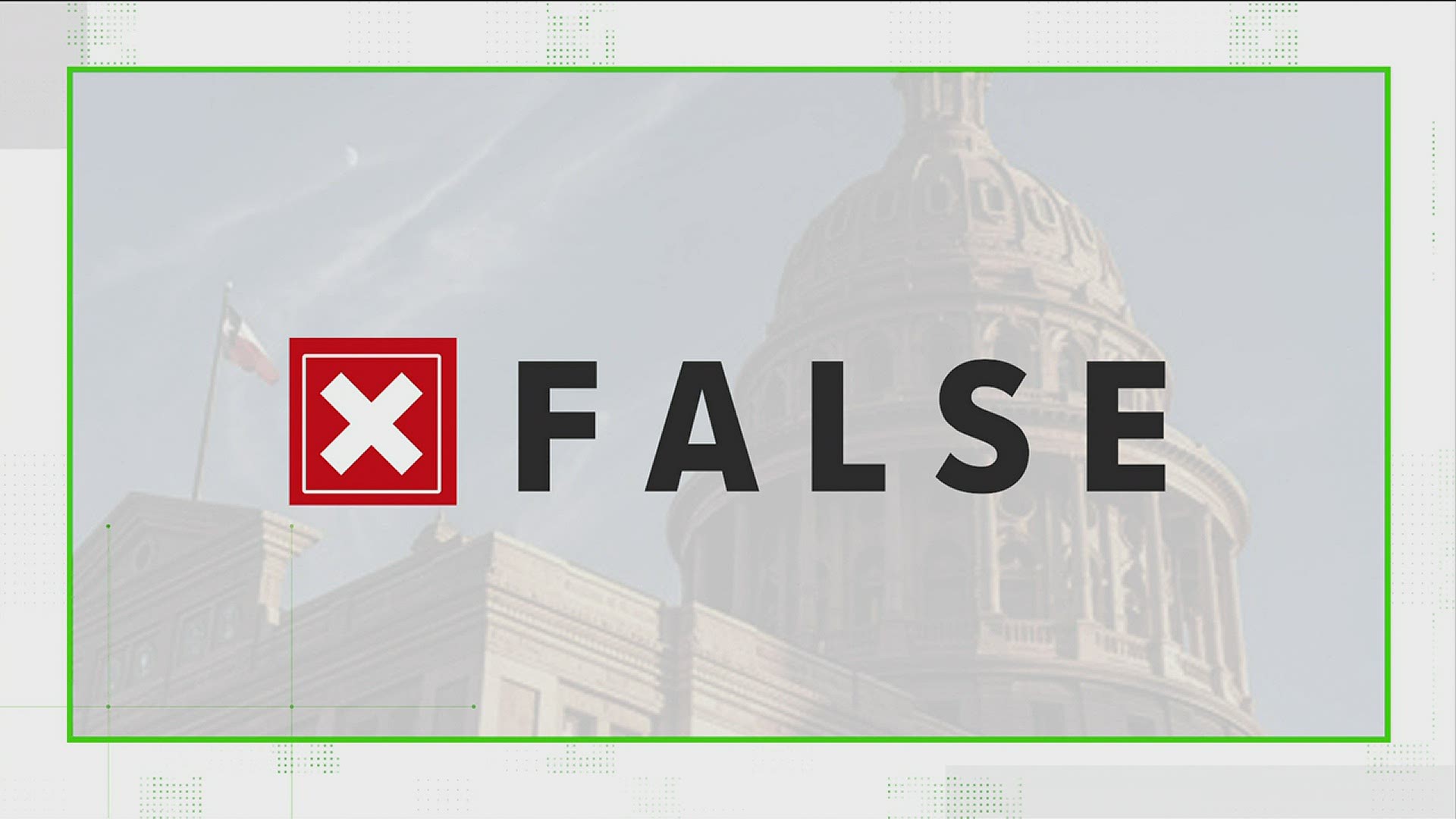There's been a lot of discussion online about Texas Senate Bill 7, which is a bill that Republican sponsors claim preserves election integrity. Democrats and other opponents claim it makes it harder for Texans to vote.
There was a tweet shared online making a claim that the law penalizes people taking non-relatives to go vote.
THE QUESTION
Does Senate Bill 7 make it illegal to drive more than two non-relatives to the polls?
THE SOURCE
- Texas Senate Bill 7
- Kimi Lynn King, political science professor at the University of North Texas
- Jim Riddlesperger, political science professor at Texas Christian University
THE ANSWER
No, the current Senate Bill 7 does not make it illegal to drive more than two non-relatives to the polls.
WHAT WE FOUND
Any language connected to the number of people someone can drive to a polling location does not exist in the bill’s latest draft.
However, in a previous version, in part "f" of section 3.09, it discusses driving three or more voters to the polls.
The bill says a driver has to submit a form that explains the reason for transportation assistance and his or her relationship with the voter.
It must be delivered to the secretary of state before the voter goes to the polling place. The bill does not prescribe a penalty or punishment for not submitting that form.
While this section is not in the current draft, that doesn't mean it's off the table. Political science experts say parts of previous versions can be brought back into finalized bills.
"In terms of the legislation where it stood when the legislative session ended last night, that was one of the proposals that was put forward," King said. "Assuming that the provision is in the legislation that was proposed, it is absolutely the case that we do not have clear guidance out of the U.S. Supreme Court regarding whether this kind of provision is lawful."
If this driving provision ends up in the final bill, political science experts say the way polling locations are staffed would also have to change.
"That would require poll workers who watch who drove up to the polling places, Riddlesperger said. "As you know, poll workers are inside the building. And therefore, there's almost no way that they would know whether a non-relative drove them to the polling place or not."

